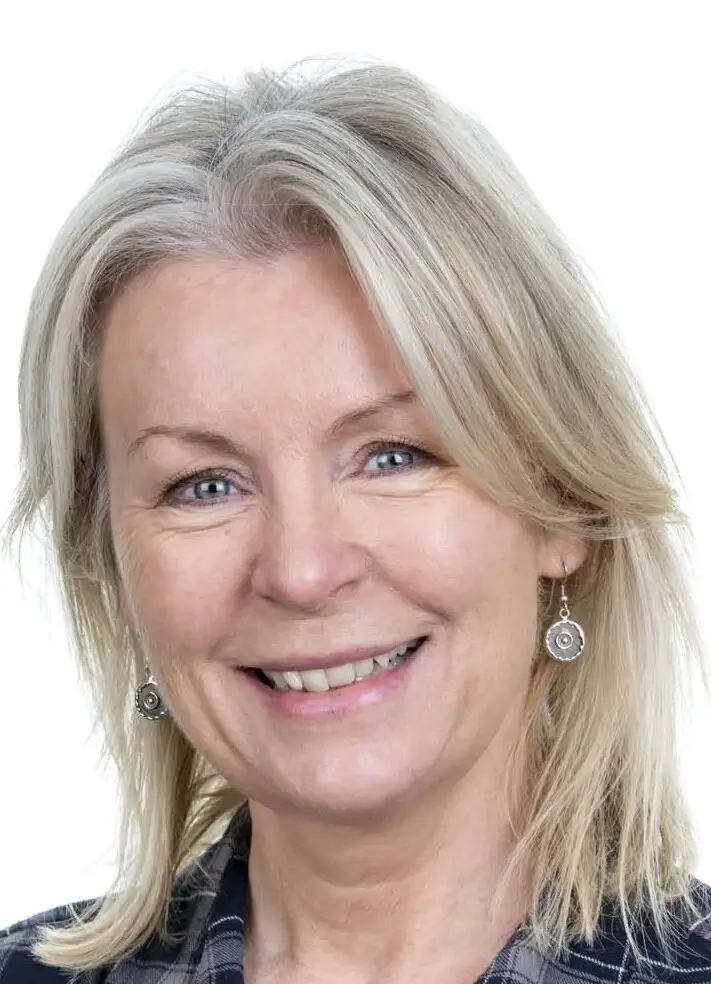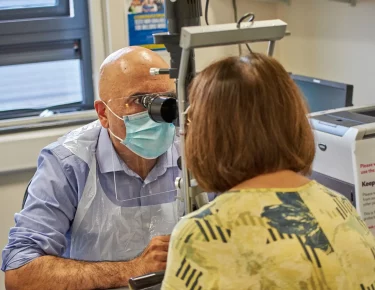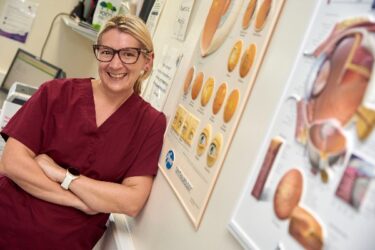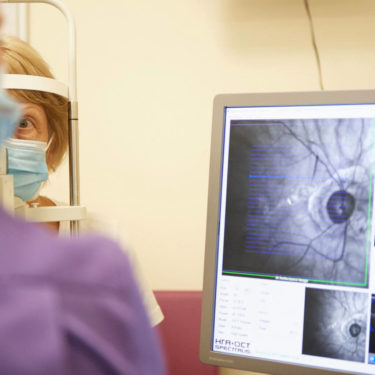As part of Macular Awareness Week, we sat down with Susie McCallum, Community & Events Fundraising Manager for the Macular Society, to talk mealtimes, her mission, and Macular Disease.

First things first, what is Macular Disease?
Macular disease is the biggest cause of sight loss in the UK, with around 300 people diagnosed every day. And yet most people have never heard of it – until they are diagnosed with it that is, or until someone they know tells them about it.
The macula is a tiny area of the retina, at the back of the eye. It’s responsible for central vision, clarity and colour, and if it is damaged, it leads to central vision loss.
Could you tell us a bit about the Macular Society? Who are you and what do you do?
Macular disease can be cruel and isolating. Yes, it can it steal your sight, but also your independence and your ability to do the things you love. It is not unusual to hear that many people would rather lose a limb than their sight.
Our services help people to beat Macular Disease, by giving them the best advice and support on living with their condition. Our local groups help people overcome the isolation of the condition while educating others by encouraging them to look after their eyes.
Sometimes, just giving advice on everyday practical things like improving lighting in the house can be enough to help. Occasionally, we act as an advocate for someone who may not be getting the treatment they need. Other times we simply listen; when someone has just been diagnosed, they are often terrified about what the future holds for them.
But that’s not enough. We want to eradicate the disease entirely, so no-one has to suffer the devastation of sight loss. There is only one way to beat Macular Disease for good. We must fund more research until we find a cure or find treatments that stop it in its tracks. We don’t know which research projects currently underway will deliver the breakthroughs we all hope for, so we are determined to fund as many of these projects as possible.

You’re now in partnership with Practice Plus Group. Could you tell us a little about what this entails?
We’re delighted to be working in partnership with Practice Plus Group to raise awareness about macular disease and the support available. Macular disease is the leading cause of sight loss in the UK, so accessing treatment and support is critical for people affected.
We also see the opportunities the partnership brings to raise vital funds for the Macular Society. We are hoping that all sites within the Practice Plus Group will organise their own fundraising events throughout our partnership.
What do you hope to get out of the partnership? What are you most looking forward to?
We look forward to continued great communication with the Practice Plus Group and, of course, we hope that they are very successful in their fundraising efforts! A very important benefit of this sort of partnership is increased awareness of the Macular Society, our vital work, and of how we can provide first-class advice and information about their condition. This is definitely something that the Practice Plus Group and the Macular Society can do together.
“Nearly 1.5 million people in the UK have Macular Disease. It affects people of all ages.”
Susie McCallum, Community & Events Fundraising Manager for the Macular Society
Tell us a bit about the people affected by Macular Disease; can it affect anyone?
Nearly 1.5m people in the UK have macular disease. It affects people of all ages. Age-related macular degeneration (AMD) is the most common condition and generally affects people over the age of 55. AMD is the biggest cause of sight loss in the UK, affecting more than 700,000 people.
But there is also a group of rare inherited conditions called macular dystrophies that can affect much younger people. Some of these rare conditions can appear in childhood, although some are not diagnosed until later in life. Vision in children can deteriorate rapidly and, for some, this means a very different life to one that they, and their parents, had hoped for. There is a great deal of research going on into potential treatments for macular dystrophies. We are finding out more about genetics and gene-based therapies are being developed. Stem cell research is also encouraging.
What’s your advice to people who think they might be suffering from Macular Disease?
One of our main messages is that vision matters. It is very important that people get regular check-ups with their optometrist and take personal care of their vision.
Optician practices test sight, prescribe glasses, and check for eye disease. Some optometrists use photography or other imaging to detect early signs of macular degeneration. If the optometrist suspects macular disease, they may refer patients to a retinal specialist at the local hospital. There are treatments that can be offered for some conditions, although the condition which affects the largest number of people, dry AMD, still has no treatment and no cure.
But we can all help to take care of our vision by eating a diet high in colourful vegetables and fruit (we call it eating the rainbow). They can also protect their sight by not smoking and by taking regular exercise. It is also very good advice to wear sunglasses when necessary. Whilst these measures may not prevent macular degeneration, research shows that they may slow down its progression.
If someone thinks they have a macular condition, or has been diagnosed, we strongly advise that they get in touch with us on our Advice Telephone 0300 30 30 111.





